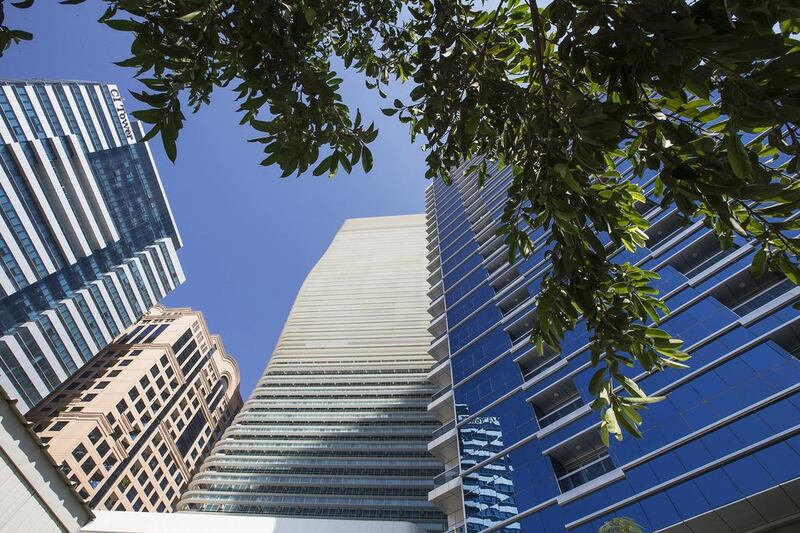While experts in Dubai have been busy trying to predict exactly when a market that has been in decline for approximately 18 months might show signs of bottoming out, in Abu Dhabi many believe house prices may now have peaked.
CBRE’s analysis of the market shows that apartment prices in the capital increased by 4 per cent year-on-year in 2015, and villa values climbed by 8 per cent. And although there were signs of slight rental decline in the final quarter of the year, rents during the course of 2015 moved up by between 5 and 10 per cent overall.
The reason for this is simple – Abu Dhabi has about half the number of properties that the oversupplied Dubai market has, and, according to CBRE’s Mena region managing director Nicholas MacLean, developers have been better at managing supply and demand.
CBRE estimates about 6,000 new units came on to the market in Abu Dhabi in 2015, compared with a five-year annualised average of about 10,000 units. Mr MacLean says it had initially expected about 9,000 units to be delivered in Abu Dhabi last year but, as in Dubai, developers “are judging the level of activity in the marketplace and are acting, in some cases, to delay delivery so they can maintain current pricing levels”.
CBRE is currently predicting that about 8,500-9,500 units are “capable of” delivery this year, with a further 7,500-8,500 next year, but numbers are likely to be lower if developers fear weaker demand.
Neither Mr MacLean or the Asteco property consultant’s Abu Dhabi general manager, Jerry Oates, expects a wave of new projects to be announced either at Cityscape Abu Dhabi this month – or indeed during the second quarter of 2016.
Asteco says just 2,713 new units were delivered to buyers in freehold areas of the city last year. In 2012 and 2013, there were 14,500 units and 12,300 units delivered, respectively, yet Mr Oates says most of these were delayed units that had initially been sold before the 2008 financial crisis. Even schemes announced this year are not expected to be “new”.
“It will be a new launch in 2016, but one that has been launched before,” argues Mr Oates.
David Dudley, the head of JLL’s Abu Dhabi office, says investors had enjoyed a “bull-run” over the past three years, with prices growing by 25 per cent in 2013 and 2014 and residential rates increasing by 30 per cent between 2013-15. However, he says this came to an end late last year.
“The decline in the oil price has been a major contributing factor to the reduction in investor sentiment, which has negatively affected the sales market and transaction volumes,” he says.
Declan McNaughton, the UAE managing director of consultancy Chestertons, adds that Abu Dhabi is currently witnessing “a sea change with regards to demand”.
“In the last few months, we have seen a number of high-profile companies make staff redundant, so properties that were previously unavailable are now coming on to the market,” he says.
“Affordable housing will also be in demand as there is a huge gulf between the top earners and entry-level workforce, who form the majority. If we could see a truly affordable housing scheme enter the market, and be sold to the people who would benefit, this would create a more rounded and sustainable market offering,” he argues.
One potential stimulus for demand is a new property law introduced in early March. It is being overseen by Abu Dhabi’s Department of Municipal Affairs and includes a host of new requirements for sellers of off-plan schemes, such as setting up escrow accounts to hold money, entering plot sales on to an official Real Estate Register and a permits system for brokers to ensure they are properly trained.
Mr MacLean says that as the market slows, more disputes are likely between parties.
“I think Rera [Dubai’s Real Estate Regulatory Authority] has done a very good job of [ managing disputes] and I think we will see copies of that model elsewhere within the GCC over the next five years. I think it’s natural that Abu Dhabi does the same thing.”
Mr Oates welcomes the requirement for brokers to undergo proper training. “Frankly, if I throw a stone out of the window in Abu Dhabi I will hit a real estate person and I don’t think necessarily that all have been as professional as the market deserves.
“It needs professionalism and people who stand by what they are doing. We’re just going through the courses now. They’re not cheap, but they are designed to make sure the people we have are professional, and that has to be welcomed.”
mfahy@thenational.ae
Follow The National's Business section on Twitter







